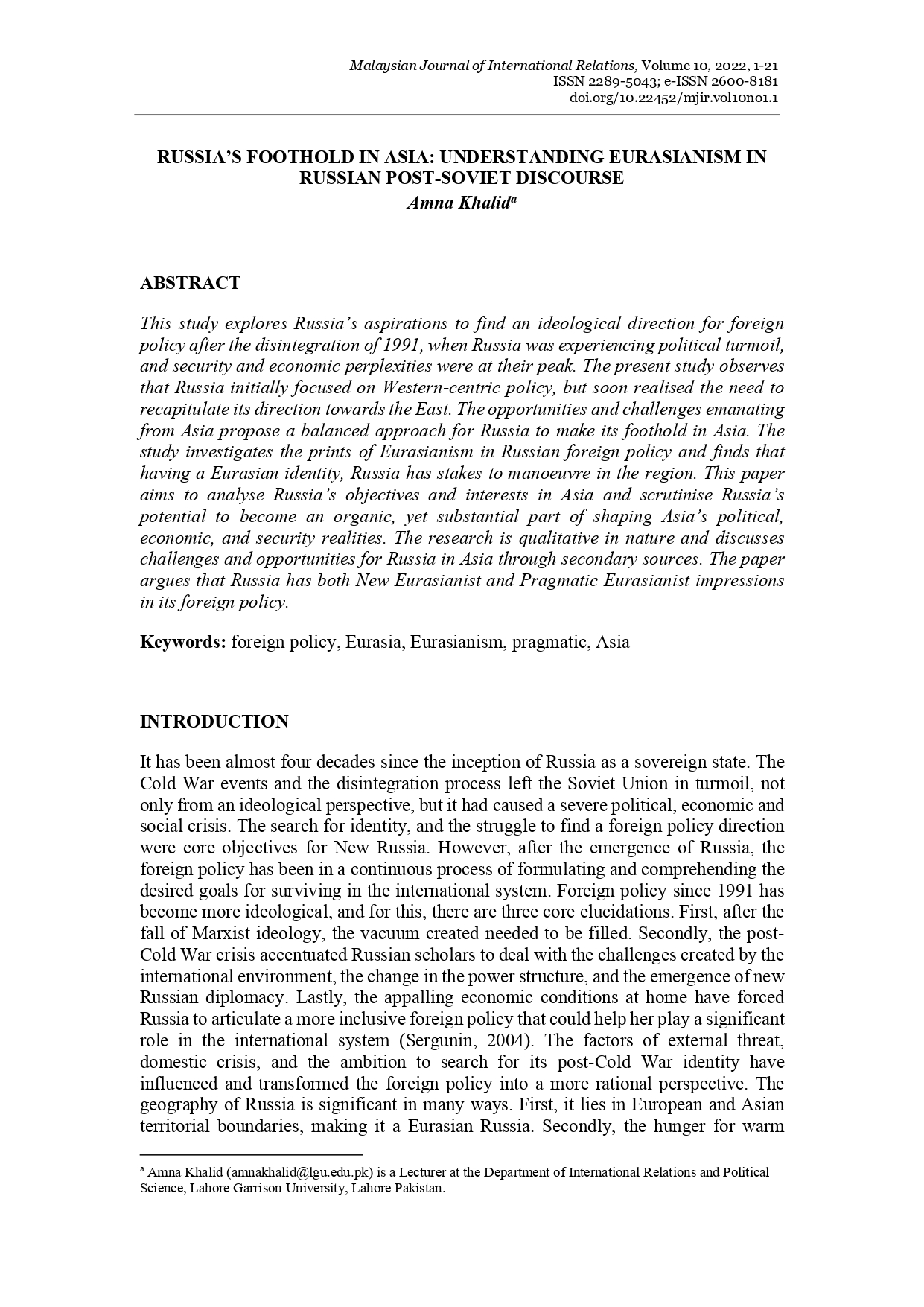Russia’s Foothold in Asia: Understanding Eurasianism in Russian Post-Soviet Discourse
Main Article Content
Abstract
This study explores Russia’s aspirations to find an ideological direction for foreign policy after the disintegration of 1991, when Russia was experiencing political turmoil, and security and economic perplexities were at their peak. The present study observes that Russia initially focused on Western-centric policy, but soon realised the need to recapitulate its direction towards the East. The opportunities and challenges emanating from Asia propose a balanced approach for Russia to make its foothold in Asia. The study investigates the prints of Eurasianism in Russian foreign policy and finds that having a Eurasian identity, Russia has stakes to manoeuvre in the region. This paper aims to analyse Russia’s objectives and interests in Asia and scrutinise Russia’s potential to become an organic, yet substantial part of shaping Asia’s political, economic, and security realities. The research is qualitative in nature and discusses challenges and opportunities for Russia in Asia through secondary sources. The paper argues that Russia has both New Eurasianist and Pragmatic Eurasianist impressions in its foreign policy.
